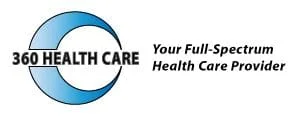How Do You Eat?
Ever wonder why you just feel tired all the time? You try to eat all the right foods and take the right supplements and medicines and yet you still have digestive issues, weight issues, and just don't feel good. Let me tell you a little secret to improving your health: it's not just about what you eat; it's also about how you eat and drink.
We've all been told that we have to eat more greens, drink more water, and take some supplements to achieve optimal nutrition and health and look like Arnold Schwarzenegger.What most people don't know is that how we eat also plays a huge role. After seeing thousands of patients over my decades of practicing medicine, one of the recurrent problems I see is that people have a drinking problem. No, not alcohol, but water. You see, drinking too many liquids during meals is actually bad for your digestion and health. Think about it - your stomach works by breaking down food both mechanically and most importantly with stomach acids and enzymes. When you drink a lot of liquids during meals, you dilute and neutralize much of the stomach acids and enzymes. What does that mean for you? It means that after you took the trouble to eat nutritious foods, those nutrients are being flushed out of your system instead of being absorbed. It's like pouring a gallon of water in your gas tank and expecting your car to work normally. If your enzymes are diluted and neutralized then the proteins, fats, and oils don't get broken down into amino acids and fatty acids. Absorbing undigested proteins, fats, and oils is like trying to eat a large pizza whole - messy and doesn't work too well. If these big, bulky proteins and fats leak directly into your blood, they become toxins, causing leaky gut and making your liver and pancreas overworked. Bad digestion can also lead to a weakened immune system, lowered levels of cortisone, free radicals in the blood, impaired organ function, and chronic inflamation. Perhaps more importantly, over time this can lead to diabetes or certain types of cancer. While genetics do influence both diabetes and cancer, it is your lifestyle and eating habits that ultimately tips the scale. Diabetes is heavily dependent on pancreatic function and your body's metabolism. When pancreatic enzymes become diluted and neutralized, the pancreas starts working in overdrive to conpensate. Over time, pancreatic function becomes impaired and can result in diabetes. Cancer is a type of chronic inflamation. When your cells and tissues are in a nutrient and oxygen rich environment, cancer dies. With poor digestion, your immune system, cortisone levels, and pH levels all suffer and cancer can then take hold. Can you see why you might have a drinking problem?
So, what do you do? You still need to drink eight cups of water a day, just make sure you drink this e ither 30 minutes before your meals or an hour afterwards. This gives your digestive tract time to optimize absorption of the water and nutritients from your meal. During the meal, it's fine to have some liquids. I regularly enjoy a couple glasses of wine. The key is to sip your drink, not gulp it down. Eating the right way helps too. Don't wolf your food down, chew properly. Eating too fast doesn't allow you to chew your food properly and leads to cramming too much food (and too many calories) into your stomach. Not only does this destroy digestive efficiency, but it also leads to weight gain from too much food. Try to chew 30 to 40 times for each mouthful, ensuring that the food you eat gets broken down enough for your stomach acids and enzymes to do their work. This also means your stomach has time to let your brain know that it is filled and results in you feeling full without stuffing yourself. We all live in a fast-paced world where we're trying to multitask, and eating time is often scrunched.However, balance that with the consequences of bad digestion and the decision is easy.Changing a few simple eating habits can save your health.
A great way to start your new healthy eating habits is to begin with a cleansing program. It is important to detoxify or purify your body regularly. Even with eating right, toxins and other trash builds up in your body and especially in the colon. Regularly cleansing your colon through colon hydrotherapy or coffee enemas greatly improves colon health. Your liver could use some love, too. Doing a liver detox or whole body detox clears your system of the pollutants and harmful substances that are part of a modern life. Just like changing the oil in your car or the air filters in your home, your body needs cleansing. While your body is made with methods of detoxification, our diet and environment has become more toxic so our body needs help.Doing the right detox program helps your body rid itself of cancer-causing free radicals, clear some of the fats and oils in your bloodstream, and restore the balance of bacteria in your intestines. Toxic heavy metals like mercury can also become lodged in your system, and through detox these toxins can be removed. By following a detox program and eating the right foods, your body's pH will also balance out. It is well documented that cancers thrive in an acidic environment while dies in an alkaline one. While not a cure-all, doing a detox is a great way to build or improve your health fundamentals. Your body begins to absorb nutrients better, and your organ function is improved. Afterwards, you can expect to feel more energy, clear-headed and good overall. Just remember that nutrition is the foundation for health, and good nutrition isn't a one-night stand but a habit and life choice.
Dr. Jin Li Dong, DC, LAc
